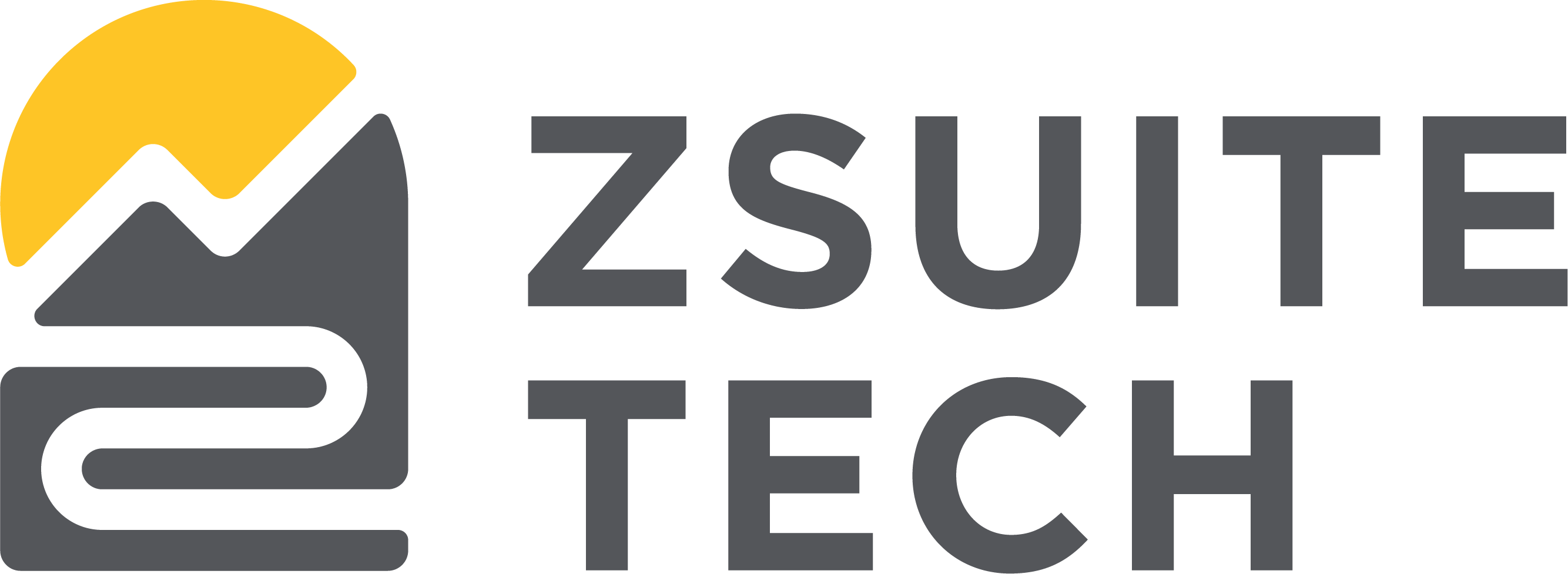FDIC Insurance and ZSuite Tech: How to know if subaccounts are insured
by Katherine Ring on Mar 30, 2023 1:56:05 PM
March 30,2023
ZSuite Tech values our financial institution clients as well as their respective customers and appreciates the opportunity to share our understanding and interpretation of how FDIC insurance coverage applies to accounts opened within the ZDeposit and ZEscrow platforms. Below you will find some commonly asked questions and answers that pertain to this topic, along with resources for obtaining additional information.
_____________________________________________________________________________________________
Q: What is the FDIC?
A: The FDIC (Federal Deposit Insurance Corporation) is an independent agency of the United States government that protects bank depositors against the loss of their insured deposits in the event that an FDIC-insured bank or savings association fails. FDIC insurance is backed by the full faith and credit of the United States government.
Q: What is deposit insurance?
A: FDIC deposit insurance protects bank customers in the event that an FDIC-insured depository institution fails. Bank customers don’t need to purchase deposit insurance; it is automatic for any deposit account opened at an FDIC-insured bank. Deposits are insured up to at least $250,000 per depositor, per FDIC-insured bank, per ownership category. Deposit insurance is calculated dollar-for-dollar, principal plus any interest accrued or due to the depositor, through the date of default.
Example: If Lisa Smith had a CD account at ABC Bank in her name alone with a principal balance of $195,000 and $3,000 in accrued interest, the full $198,000 would be insured.
Q: How much deposit insurance coverage do my accounts qualify for?
A: The standard deposit insurance amount is $250,000 per depositor, per FDIC-insured bank, per ownership category. The amount of FDIC insurance coverage depends on the FDIC ownership category. This generally means the manner in which you hold your funds at the bank.
Q: What are the requirements for accounts opened in ZDeposit and ZEscrow to receive FDIC insurance coverage?
A: Deposits held by a fiduciary on behalf of one or more principals are insured on a pass-through basis as the deposits of the principal (the actual owner) to the same extent as if the deposits were deposited directly by the principal, provided all of the following three requirements are met:
- Funds must be in fact owned by the principal and not by the third party who set up the account (i.e., the fiduciary or custodian who is placing the funds).[1] This requirement is a factual matter that depends upon the specific facts and circumstances of the transaction for which the particular escrow account was established. To confirm the actual ownership of the deposit funds, the FDIC may review:
- The agreement between the third party establishing the account and the principal; and/or
- The applicable state law.
- The FDIC-insured bank’s account records must indicate the agency nature of the account (e.g., XYZ Company as Trustee, XYZ for the benefit of (FBO))
- By default, all accounts opened within ZDeposit and ZEscrow have an agency nature and follow the definition of “fiduciary accounts” as established by the FDIC. As a result, the individual or entity opening the account is established as a fiduciary. Any beneficiaries added to the account are designated as principals with legal ownership of the funds.
- By default, all accounts opened within ZDeposit and ZEscrow have an agency nature and follow the definition of “fiduciary accounts” as established by the FDIC. As a result, the individual or entity opening the account is established as a fiduciary. Any beneficiaries added to the account are designated as principals with legal ownership of the funds.
- The records of the FDIC-insured bank, the fiduciary or a third party must indicate both the identities of the principals as well as the ownership interest in the deposit.
- To satisfy this requirement, ZSuite recommends that the fiduciary / escrow agent include the names of the actual owners of the account at the time the account is opened in the ZSuite platform so that this information appears in the bank’s records. On the other hand, if this is impractical, the escrow agent must meticulously keep its own records of the owners’ names and the amount of account funds belonging to each.
If all three requirements are met, each sub-account opened in ZDeposit and ZEscrow would qualify for full FDIC insurance coverage.
Q. What happens if the three requirements above are not met on accounts opened in ZDeposit or ZEscrow?
A. If the disclosure and the recordkeeping requirements discussed in the section above are not met, the accounts will be insured as the deposits of the fiduciary in either the single account or corporate account ownership category. These deposits will then be added to any other deposits the fiduciary may hold in the same ownership category at the same FDIC-insured bank, and the total will be insured up to $250,000.
Q: What happens if the beneficiary / principal has other accounts held at the bank that are not being managed by a fiduciary?
A. All deposits that an accountholder has in the same ownership category at the same bank are added together and insured up to the standard insurance amount, regardless of the manner in which the funds are deposited.
Example: An attorney, acting as the fiduciary, opens a savings account with a $200,000 balance at ABC Bank for John Smith as the sole principal and legal owner of the funds. However, John Smith already has a savings account with ABC Bank that is in his name with a balance of $100,000. Given that the depositor, ownership category and FDIC-insured bank are the same, the total FDIC coverage in this scenario would be capped at $250,000.
Q: Can ZSuite guarantee the FDIC insurance coverage of individual accounts in ZDeposit and ZEscrow?
A: ZSuite and FDIC-insurance banks are prohibited under agency guidelines from making promises or guarantees for coverage of specific accounts or customers. For more detailed information about your specific situation, ZSuite recommends that you refer to the Electronic Deposit Insurance Estimator (EDIE). You can also visit the FDIC Information and Support Center to submit a request for deposit insurance coverage information or call 1-877-ASK-FDIC (1-877-275-3342) to ask any other specific deposit insurance questions.
General Disclaimer
ZSuite has taken reasonable measures to ensure that the information and data presented in this document is accurate and current based on our understanding and interpretation of FDIC guidelines. However, ZSuite Technologies, Inc makes no express or implied warranty regarding such information or data, and hereby expressly disclaims all legal liability and responsibility to persons or entities who use or access this content, based on their reliance on any information or data that is available through this document. For the avoidance of doubt, this document does not purport to authoritatively interpret current federal statutes, regulations, orders or other federal authority, nor does it bind ZSuite, the FDIC or any other federal agency or entity with regard to the matters presented.
The information available in this document is not intended to constitute and should not be considered as legal advice, nor is it intended to substitute for obtaining legal advice from competent, independent, legal counsel in the relevant jurisdiction. In addition, the content of this document is not designed or intended to provide authoritative financial, accounting, investment, or other professional advice which may be reasonably relied on by its readers. If expert assistance in this area is required, the services of a qualified professional should be sought.
References:
- FDIC Gov - Financial Institutions Employee’s Guide to Deposit Insurance: https://www.fdic.gov/financial-institution-employees-guide-deposit-insurance
- FDIC Gov – Account Ownership Categories:
https://www.fdic.gov/deposit/diguidebankers/documents/account-ownership.pdf - Code of Federal Regulations – Deposit Insurance Coverage:
https://www.ecfr.gov/current/title-12/chapter-III/subchapter-B/part-330 - Stewart Virtual Underwriter:
https://www.virtualunderwriter.com/en/bulletins/2008-9/BL121764951000000002.html - American Bank Association - IOLTA Account Insurance Coverage:
https://www.americanbar.org/groups/interest_lawyers_trust_accounts/resources/fdic_insurance_iolta/
[1] The first requirement above will not be satisfied if the purported agent or the custodian has entered into a debtor/creditor relationship with the purported owner as opposed to an agent/principal relationship. The creation of a debtor/creditor relationship may occur if the purported agent has changed the terms of the FDIC-insured bank’s deposit contract, such as the terms relating to maturity dates or interest rates. For example, if a customer of a deposit broker is promised by the “agent” that he or she will earn 3% on his or her deposit when the bank is paying only 2%, the “agent” would not be an agent but a debtor with an independent obligation to pay 3%. In such a scenario, the deposits at the bank would not be eligible for “pass-through” coverage to the customers. Rather, the deposits would be treated as corporate deposits belonging to the so-called “agent”. The scenario above (in which the “agent” pays interest in excess of the interest paid by the bank) should be contrasted with scenarios in which an agent retains part of the interest paid by the bank as the agent’s fee. In the latter scenario, “pass-through” coverage is possible because the agent does not assume independent debt obligations. Of course, the agent should disclose the existence of all such fees to its customers.
- Press (53)
- Commercial banking (16)
- Deposits (14)
- Partnerships (12)
- 1031 Exchanges (9)
- ZEscrow (9)
- Bank tech (8)
- Specialty Deposits (8)
- ZValues (6)
- Property Management (5)
- VAM (4)
- Law Firms (3)
- Liquidity Management (3)
- Municipalities (3)
- Working smart (3)
- Podcast (2)
- Webinar (2)
- Builder, Banker, Hacker, Chief (1)
- FDIC Insurance (1)
- February 2026 (1)
- December 2025 (1)
- November 2025 (1)
- September 2025 (1)
- August 2025 (4)
- July 2025 (1)
- June 2025 (2)
- May 2025 (1)
- March 2025 (1)
- February 2025 (1)
- January 2025 (1)
- December 2024 (1)
- November 2024 (1)
- October 2024 (3)
- September 2024 (2)
- August 2024 (3)
- July 2024 (2)
- June 2024 (3)
- May 2024 (6)
- April 2024 (2)
- March 2024 (5)
- February 2024 (1)
- January 2024 (2)
- December 2023 (1)
- November 2023 (3)
- October 2023 (1)
- September 2023 (1)
- August 2023 (3)
- June 2023 (3)
- May 2023 (1)
- March 2023 (6)
- February 2023 (4)
- January 2023 (4)
- December 2022 (2)
- November 2022 (6)
- October 2022 (1)
- September 2022 (1)
- August 2022 (3)
- June 2022 (1)
- May 2022 (1)
- April 2022 (5)
- March 2022 (3)
- December 2021 (2)
- September 2021 (3)
- July 2021 (2)
- June 2021 (1)
- May 2021 (1)
- April 2021 (4)
- March 2021 (3)
- February 2021 (4)
- January 2021 (2)



